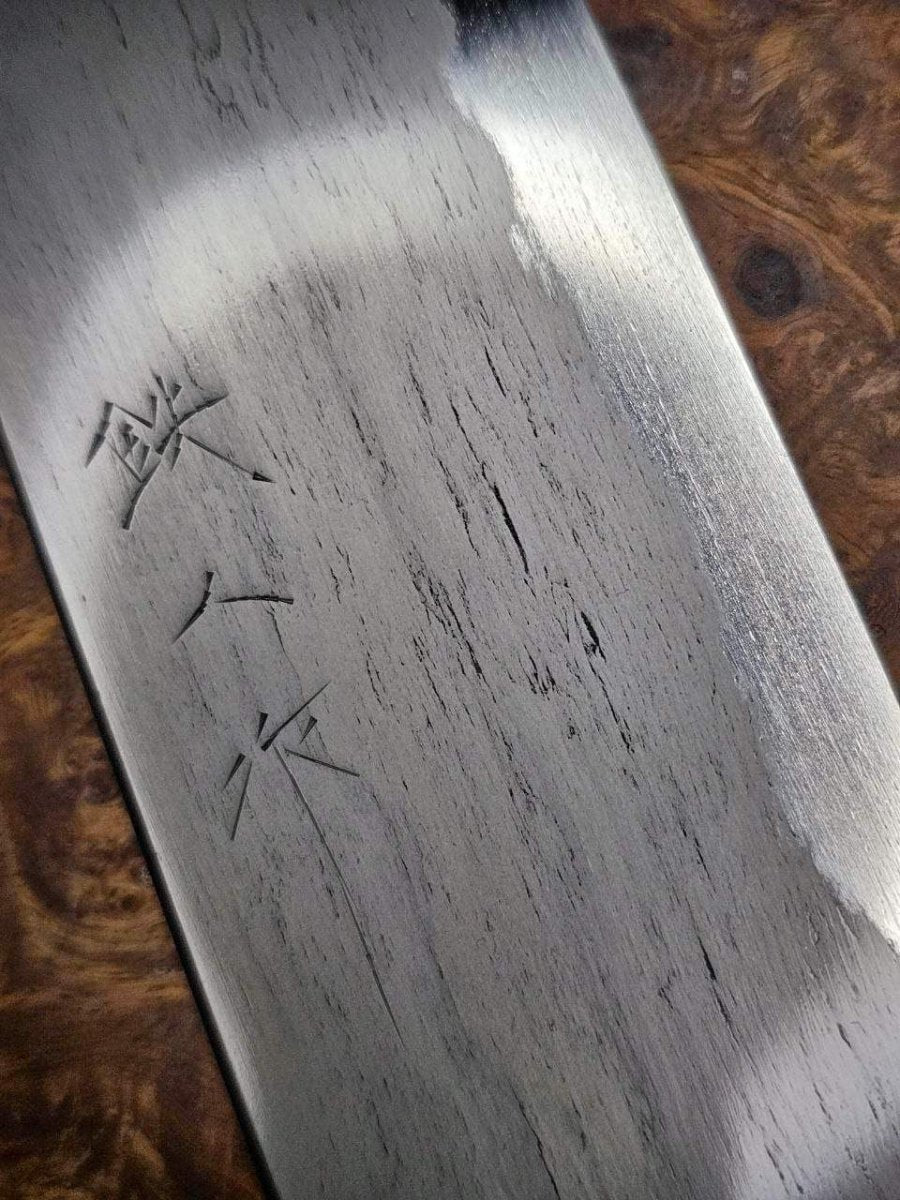
Mastering Your Japanese Kitchen Knives | Maintenance Advice
Mastering Your Japanese Kitchen Knives: Tips to Avoid Chipping and Maintain Sharpness
Welcome to the Tokushu Knife blog, your go-to resource for all things related to Japanese kitchen knives. Today, we're sharing some essential tips on how to avoid chipping your Japanese kitchen knives and what to do if your knife does chip. Our aim is to help you maintain the sharpness and longevity of your knives, ensuring they remain a valuable asset in your kitchen for years to come.
Avoiding Chipping: The Do's and Don'ts
Japanese kitchen knives are renowned for their sharpness and precision. However, they can be prone to chipping if not used correctly. Here are some key tips to prevent this:
- Cut Appropriate Materials: Never cut through anything you cannot chew, like ice. Avoid cutting frozen foods or bones with your Japanese kitchen knives. These hard materials can cause your knife to chip.
- Use Proper Cutting Techniques: Whether you're a push cutter, a pull cutter, or an up-and-down chopper, always cut straight down. Avoid coming down on the food at an angle and never employ torsion (wiggling left to right) on your knife. If you're having trouble cutting through a food item, pull the blade back and push back down, but never use torsion.
- Choose the Right Cutting Surface: Avoid cutting on glass, bamboo, marble, or countertops, as these hard surfaces can damage your knife. Instead, opt for a high-quality polyurethane (plastic) board, a high-quality soft cutting board like Hasegawa, or a wooden cutting board (either edge grain or end grain).
What to Do If Your Knife Chips
Even with the utmost care, your knife may chip. If this happens, don't panic. While you can have a personal sharpening kit at home, removing chips might require more than a 1K grit stone. You might need multiple stones and a flattening stone, which can get complicated.
Instead, we recommend sending your knife to a professional sharpener. At Tokushu Knife, we offer mail-in services to sharpen your knives and remove chips, so you don't have to worry about it.
Conclusion
Remember, the key to maintaining your Japanese kitchen knives is proper use and care. Avoid cutting hard materials, use correct cutting techniques, and choose the right cutting surface. And if your knife does chip, don't panic—professional help is available. Chat with us on our site for a repair quote.
Stay tuned to the Tokushu Knife blog for more tips and advice on caring for your Japanese kitchen knives. If you have any questions, don't hesitate to reach out to us. We're here to help!



Leave a comment
This site is protected by hCaptcha and the hCaptcha Privacy Policy and Terms of Service apply.